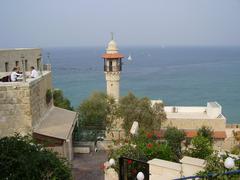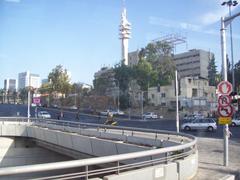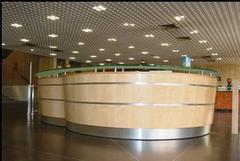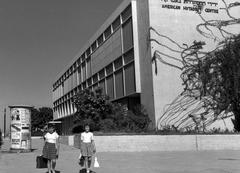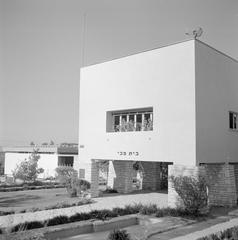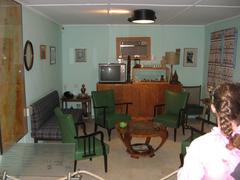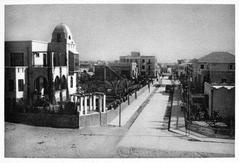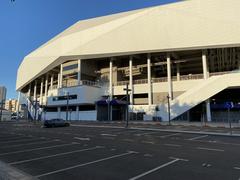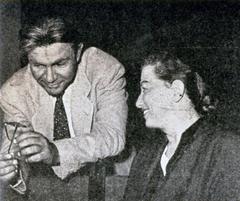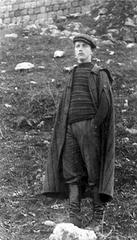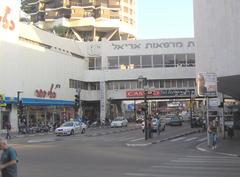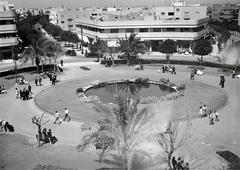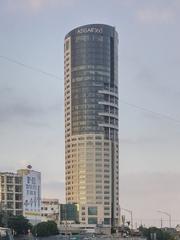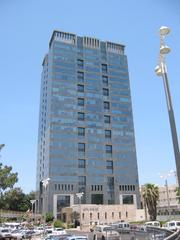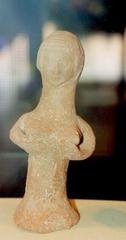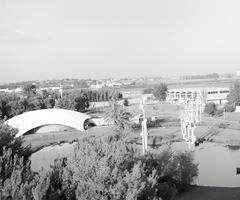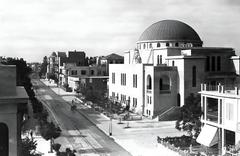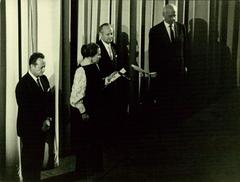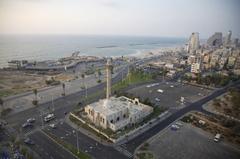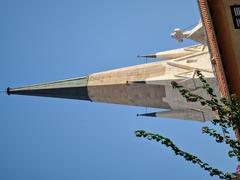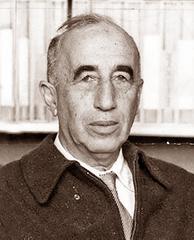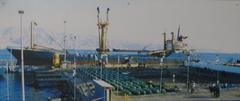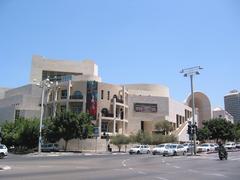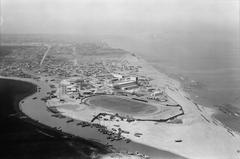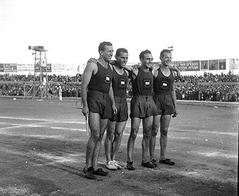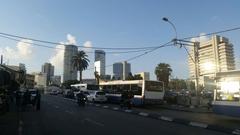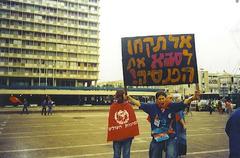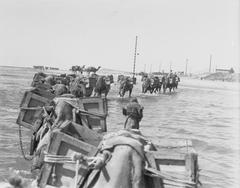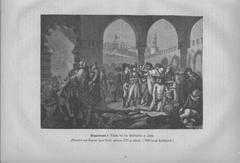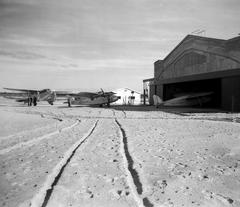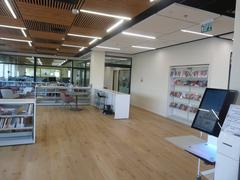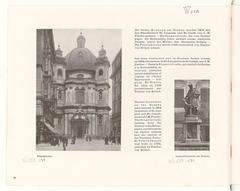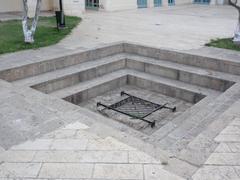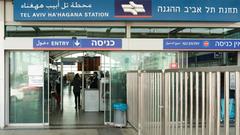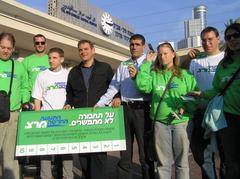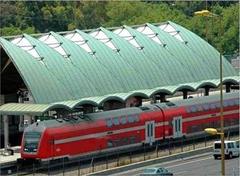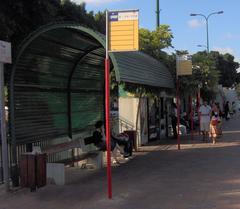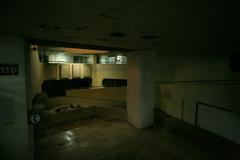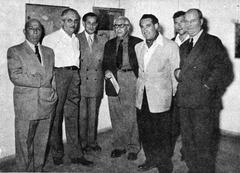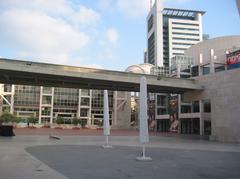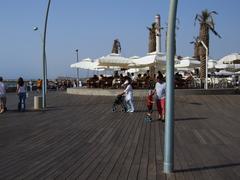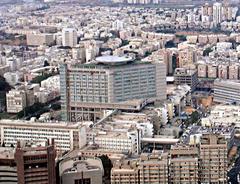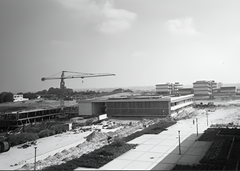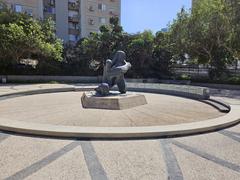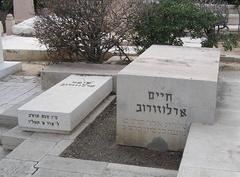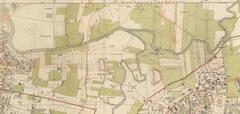Yitzhak Rabin Center: Visiting Hours, Tickets, and Tel Aviv Historical Sites Guide
Date: 04/07/2025
Introduction
Perched above the Yarkon Park with sweeping views of the Mediterranean Sea, the Yitzhak Rabin Center in Tel Aviv is a living memorial to one of Israel’s most influential leaders. More than just a monument, the center is a museum, research institute, and cultural hub that explores the life and legacy of Prime Minister Yitzhak Rabin, while tracing the evolution of Israeli society and its ongoing pursuit of peace and democracy (safdiearchitects.com; dannythedigger.com).
Designed by acclaimed architect Moshe Safdie, the building’s innovative architecture and thoughtfully curated exhibitions provide a unique space for education, reflection, and civic engagement. The center’s accessible facilities, diverse programs, and proximity to other major cultural landmarks make it a must-visit for anyone interested in Israeli history, democracy, and the pursuit of peace (rabincenter.org.il; timeout.com).
This comprehensive guide covers the center’s origins, architectural highlights, visiting information, exhibitions, educational mission, and practical travel tips—equipping you for a meaningful and enriching visit.
Table of Contents
- Origins and Historical Context
- Architectural Vision and Design
- Museum Experience: Exhibitions and Philosophy
- Visiting Hours, Tickets, and Accessibility
- Travel Tips and Nearby Attractions
- Institutional Mission and National Significance
- Timeline of the Center’s Establishment
- Frequently Asked Questions (FAQs)
- Visuals and Media
- Legacy and Continuing Relevance
- Plan Your Visit
Origins and Historical Context
The Yitzhak Rabin Center was conceived in the aftermath of Rabin’s assassination in 1995—a tragic event that shook Israel and the world. Leah Rabin, the late Prime Minister’s widow, played a pivotal role in ensuring that the center would not only memorialize her husband’s life but also serve as an institution for research, education, and dialogue on Israeli history and democracy (dannythedigger.com).
The Israeli government recognized Rabin’s extraordinary legacy by commissioning a unique memorial, departing from standard national monuments. The center’s establishment was intended to foster public reflection on peace, democracy, and coexistence (safdiearchitects.com).
Architectural Vision and Design
Moshe Safdie’s design for the Yitzhak Rabin Center is a powerful symbol of Israel’s journey through conflict and reconciliation. Set atop a ridge overlooking northern Tel Aviv, the building’s undulating rooflines and use of natural light create a contemplative atmosphere, while expansive glass walls offer panoramic views of the city and sea.
The structure is organized around a central two-story arcade, with museum and memorial spaces to the east and the research library to the west. The memorial tomb, designed in collaboration with Zahi Halberstadt Architects, consists of contrasting black and white stones forming a half-circle, joined by an eternal flame—symbolizing unity and the ongoing quest for peace (safdiearchitects.com).
Museum Experience: Exhibitions and Philosophy
The Rabin Center’s permanent exhibition weaves together Israel’s national narrative with Rabin’s personal and political journey. Galleries are arranged chronologically, featuring immersive multimedia presentations, interactive displays, and sensor-activated audio guides (dannythedigger.com; evendo.com).
Main Exhibition Themes
- Pre-state struggles and the founding of Israel
- Rabin’s military and political career
- The Six-Day War and its ramifications
- The Oslo Accords and peace initiatives
- The assassination and its impact on Israeli society
The exhibition features over 200 short documentary films, authentic photographs and documents, and interactive stations for deeper exploration (timeout.com; Bautrip).
Temporary Exhibitions
Rotating exhibitions address contemporary issues such as democracy, social cohesion, and peace, and often include photography retrospectives, art installations, and educational exhibits (timeout.com).
Visiting Hours, Tickets, and Accessibility
Opening Hours
- Sunday–Thursday: 09:00–17:00
- Friday: 09:00–14:00
- Closed: Saturdays and Jewish holidays
Check the official website for up-to-date hours and special closures.
Tickets
- Adult: ~45 NIS
- Discounts for students, seniors, and groups
- Free admission for young children
- Tickets available online or at the center
Guided Tours
- Available in Hebrew, English, and other languages upon request
- Advance booking is recommended, especially for groups
Accessibility
The center is fully accessible with ramps, elevators, accessible restrooms, and assistive listening devices. Multilingual audio guides and tactile exhibits are available (evendo.com).
Travel Tips and Nearby Attractions
- Location: 8 Chaim Levanon Street, Ramat Aviv, Tel Aviv
- Public Transport: Easily accessible via bus and near Tel Aviv University and Savidor Central railway stations
- Parking: Available on-site
- Nearby: Eretz Israel Museum, Yarkon Park, Tel Aviv Port, Tel Aviv University campus—ideal for a full day of cultural exploration
- Best Time to Visit: Weekday mornings for a quieter experience
- Amenities: Café and gift shop on site; air-conditioned exhibition halls
Institutional Mission and National Significance
Established by a 1997 Knesset law, the Rabin Center is Israel’s official memorial to Yitzhak Rabin. Its broader mission is to promote democratic values, tolerance, and social cohesion through education, dialogue, and critical reflection (Jewish Virtual Library). The center’s research institute, library, and auditorium host lectures, workshops, seminars, and commemorative events for diverse audiences (safdiearchitects.com; rabincenter.org.il).
Timeline of the Center’s Establishment
- 1995: Yitzhak Rabin assassinated; national mourning and calls for a memorial (dannythedigger.com)
- 1995–1996: Leah Rabin commissions the tomb and initiates plans for a center (safdiearchitects.com)
- Late 1990s–2000s: Moshe Safdie leads architectural planning and design
- 2006: Yitzhak Rabin Center opens to the public (safdiearchitects.com)
Frequently Asked Questions (FAQs)
Q: What are the visiting hours?
A: Sunday–Thursday: 09:00–17:00; Friday: 09:00–14:00; closed Saturdays and holidays.
Q: How do I buy tickets?
A: Online via the official website or at the entrance.
Q: Is the center accessible?
A: Yes, with full accessibility for mobility, hearing, and visual needs.
Q: Are guided tours available?
A: Yes, in multiple languages by advance reservation.
Q: What else is nearby?
A: Eretz Israel Museum, Yarkon Park, Tel Aviv University, and Tel Aviv Port.
Visuals and Media
- High-quality images of the center’s exterior and exhibitions, with alt text such as “Yitzhak Rabin Center main exhibition hall in Tel Aviv”
- Photos of multimedia and interactive displays with alt text “Interactive multimedia exhibit at Yitzhak Rabin Center”
- Images of the memorial area with alt text “Yitzhak Rabin assassination memorial at the Center in Tel Aviv”
Virtual tours and additional media are available on the official website.
Legacy and Continuing Relevance
The Yitzhak Rabin Center stands at the heart of Israel’s cultural and educational landscape, serving as a beacon for democratic values, tolerance, and the pursuit of peace. Through its exhibitions, educational outreach, and commemorative activities, the center ensures that Rabin’s legacy continues to inspire reflection and dialogue—both in Israel and internationally (evendo.com; timeout.com).
Plan Your Visit
Whether you are a history enthusiast, student, educator, or tourist, the Yitzhak Rabin Center offers a profound exploration of Israeli history, leadership, and the ongoing struggle for peace. Plan your visit by checking current visiting hours and ticket information on the official Yitzhak Rabin Center website. For a richer experience, download the Audiala app for guided content and stay updated on special events and exhibitions by following the center’s social media channels.
For more on Israeli history and culture, see our guides on Tel Aviv Museums Guide and Key Moments in Israeli Democracy.
Sources
- Yitzhak Rabin Center for Israel Studies and Rabin Tomb (Safdie Architects)
- Yitzhak Rabin Center Overview (Danny the Digger)
- Yitzhak Rabin Center Visitor Information (Evendo)
- Yitzhak Rabin Center Official Website
- Yitzhak Rabin Center Museum Guide (Time Out Israel)
- Bein Harim Tours - Yitzhak Rabin Center
- The Tel Avivi - The Yitzhak Rabin Center: The Israeli Museum
- Jewish Virtual Library - The Yitzhak Rabin Center
